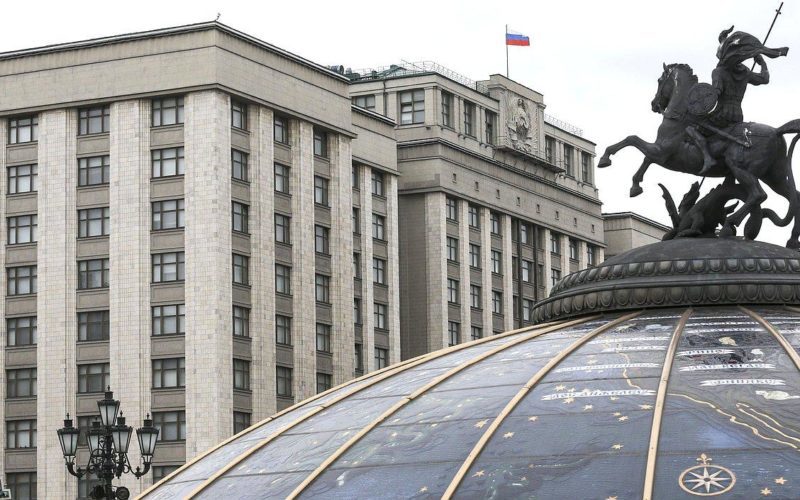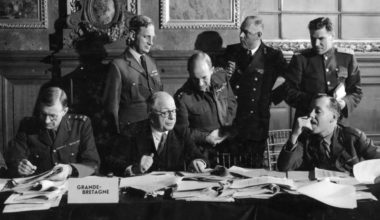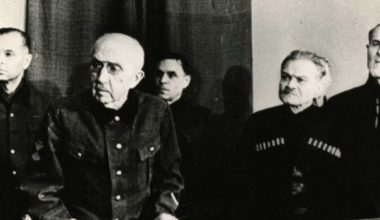On May 27, 2020 г., Alexei Zhuravlev, a deputy of the State Duma, introduced as many as two pieces of draft remembrance legislation, related to the history of World War II. Yet another bill, prepared by Duma deputy Yelena Yampolskaya, is now under examination. Now, let us look into the essence of both bills and see if they have a chance to be adopted.
The first bill
Alexei Zhuravlev is no rookie to the Russian Parliament. He was first elected Deputy of the 6th Duma from Voronezh in 2011, representing United Russia political party. At the same time, he was not a party member: his name was put on the list after the primaries carried out by the All-Russia People’s Front. The media described Zhuravlev as one of the main supporters of politician Dmitry Rogozin who was leader of Motherland-National Patriotic Union in 2003—2006 and Russia’s Ambassador to NATO in 2008.
In September 2011, before the Duma elections, Zhuravlev was appointed chairman of a new public organization, the Congress of Russian Communities, which was the first step towards the revival of Motherland (“Rodina”) which merged into Fair Russia in 2006. The party reappeared a year later in September of 2012, with Zhuravlev as chairman. Rogozin being Vice-Premier in Russian government at the time.
With 1.5 percent of votes at the 2016 parliamentary elections, Motherland could not make it. However, Alexei Zhuravlev was elected Deputy from his single-member constituency. He is not a member of any political faction, but a member of the State Duma committee on economic policy, industry, innovative development and entrepreneurship.
The first of Zhuravlev’s bills introduced in the Duma in May 27, 2020 implies that the 1989 ruling by the Congress of People’s Deputies of the USSR on political and legal assessment of the 1939 Soviet-German treaty should be declared null and void in the present-day Russian Federation. The cover sheet of the bill says the Soviet ruling “does not meet the principles of historical justice and was adopted in the context of political instability of that era, under the pressure of some foreign actors.” It also says that “upholding of a ruling that distorts the very essence of historical events, their reasons and consequences, does not go in line with the national interests of the Russian Federation and paves the way for speculations aimed to split the civil society and accuse the USSR of unleashing WWII together with Hitlerite Germany.”
The second bill
The idea of preventing attempts to shift the blame for WWII on the USSR is developed in another bill prepared by Zhuravlev. The document implies amending Russia’s criminal code with the following new article.
Article 354.2. Falsifying historical facts regarding the reasons and results of the Second World War
1. The assignment of responsibility for unleashing WWII to the USSR, or the denial of the major role of the USSR in the victory over the Axis in the Second World War, or the dissemination of information equalizing political ideologies of the USSR and Nazism, carried out publicly, shall be punishable by a fine up to 300,000 roubles, or equal to one salary or other income of the convict within the period of up to two years, or up to three years of correctional labor, or the same term in prison.
2. the same acts committed using the person’s official position or mass media, or producing accusation evidence artificially, shall be punishable with a fine from 100,000 up to 500,000 roubles, or equal to one salary or other income of the convict within the period of one to three years, or five years of correctional labor, or the same term in prison and a ban from holding certain posts or practicing certain occupations for up to three years.
The cover sheet explains that the bill was prepared “because the information campaign of falsifying historical facts regarding the reasons and results of the Second World War is fastening its pace. The goal of the campaign initiated by some European countries is to assign responsibility for unleashing WWII to the USSR and Nazi Germany, as well as to diminish the former’s role in the victory over Nazism.” One negative example mentioned in the cover sheet is the resolution of the European Parliament adopted September 19, 2020 on the importance of European remembrance for the future of Europe, marking the Soviet-German Non-Aggression Treaty of August 23, 1939 as the starting point of the Second World War.
In both bills, Alexei Zhuravlev is the only holder of the right of legislative initiative.
The third bill
The idea to legally ban the equalization of Soviet and Nazi actions is no news for the State Duma. “The idea of such restrictions was expressed many times, looks like it is floating around,” Yelena Yampolskaya, head of the Duma committee for culture admitted. In January 2020, Yampolskaya introduced a new legal norm for the amendment of the current law on the commemoration of victory of the Soviet people in the Great Patriotic Par of 1941—1945:
All public statements and publications, containing the equalization of goals, decisions and actions of the Soviet High Command and servicemen to those of the leadership, High Command and servicemen of Nazi Germany and the European Axis, shall be prohibited.
Late in April of 2020 Yelena Yampolskaya revealed that the working version of the draft legislation had been prepared and sent to United Russia parliamentary faction’s legislative coordination council. “I hope the work will not take too much time, and we will be joined by the colleagues who find this agenda important,” Yampolskaya said, adding that the issue of punishment for the violation of the law was yet to be explored: “I see two possible options as far as punishment is concerned, that is either a new article in the Administrative Code (similar to the fines for the propagandist demonstration of Nazi symbols), or some additions to Article 354.1 of the Criminal Code on the rehabilitation of Nazism. But now it is too early to discuss sanctions. First, we need to find an accurate wording, weighing up every letter of it.”
Historical and political context
The draft law that Yelena Yampolskaya is developing, as well as the bills already introduced by Alexei Zhuravlev, are obviously a response to what has been happening in recent years. Equalizing responsibility of Nazi Germany and the Soviet Union for unleashing the Second World War has become the common point in a number of declarations adopted by the United States and the European Union. The resolution by the European Parliament dated September 19, 2019 is not the only example: in May 2020, the U.S. and East European nations used the 75th anniversary of the VE-Day as a pretext to expose “Soviet totalitarianism”. The situation went improperly embarrassing, arousing a reaction from Heiko Mass, the German foreign minister. He emphasized in his article published on May 7, 2020:
The repeated attempt in recent months to rewrite history so disgracefully requires us to speak up loud and clear – something that should not actually be necessary in view of the irrefutable historical facts – and to leave no doubt whatsoever that Germany alone unleashed the Second World War by its invasion of Poland and Germany alone is responsible for the crimes against humanity of the Holocaust. Those who sow doubt about this and thrust other countries into the role of perpetrator do injustice to the victims, exploit history for their own ends and divide Europe.
The message from the German foreign office was heard but not understood: Poland’s foreign ministry press office criticized Heiko Maas for “simplifying history”.
“In Europe, we see an organized trend aimed at diminishing the Russian contribution to the Victory. This policy is in line with the agenda set by some EU members, for example Poland and the Baltic nations. This is a deliberate policy rather that ignorance,” said Alexei Miller, a history professor at the European University, St. Petersburg. The scholar emphasizes that “in the 20th century, the Nazi regime was considered absolute evil, as well as the Holocaust was an absolute crime. That was the narration which has now changed. Today, we are told that there are two absolute evils – the Nazis and the Soviet regime. The role of the Soviet Union as a country is no longer recognized.”
Chances of passing
Equalizing the responsibility of the USSR and Nazi Germany for unleashing WWII is a real challenge, painful for the Russian society. But are we sure the bills by Duma deputies are an adequate response? Not only pro-western radical opposition doubts that. Yelena Yampolskaya remembers that opinions in the Duma culture committee were divided as she introduced the bill. Many asked whether it would make sense to introduce the new legal norm. One of the opponents were the Communist Party. “There were divided opinions in the committee,” Yampolskaya told Parlamentskaya Gazeta. “My suggestion met a highly negative reaction of the CPRF representatives. The rationale behind their opinion was that the society was tired of prohibition, meaning it is a crackdown on freedom of speech. I respect my colleagues’ position and, naturally, it will be signed only by its true supporters.”
However, the draft legislation introduced by Yampolskaya has some chances to be adopted, unlike the “rival” bill by Alexei Zhuravlev. The latter had already got negative assessment from the government. The document dated May 22, 2020 and signed by Vice Premier Dmitry Grigorenko says:
Acts meant for criminalization can already be qualified as criminal under Article 354.1 of the Russian Criminal Code, that, inter alia, stipulates liability for the public dissemination of intentionally false statements on the Soviet activities during the Second World War.
The punishment described in draft article 354.2 is similar to that stipulated by Parts 1 and 2 of Article 354.1 of Russia’s Criminal Code. Moreover, the explanatory note to the bill contains no stats or other data revealing the inadequacy or ineffectiveness of the current legal norms. In view of the above, the Government of the Russian Federation does not support the draft legislation.
It is emblematic that the discontent of the Russian government with the Zhuravlev bill was obvious as early as May 19, 2020. Vladimir Davydov, deputy chairman of the Russian Supreme Court, expressed similar doubts over the bill’s usefulness in his formal comment.
Zhuravlev’s second project, on the withdrawal of the 1989 ruling by the Congress of People’s Deputies of the USSR, also seems to have low chances of passing. On May 8, 2020, a documentary named Voyna za pamyat, or “remembrance war” was shown by Rossiya 1 TV channel, featuring an exclusive interview by Vladimir Putin. In this film, the Russian president also mentioned the 1989 ruling.
The Soviet Union actually condemned the classified part of the Molotov-Ribbenthrop Pact in the late 1980s. Why cannot our Czech colleagues do the same – why not condemn that partition of Czechoslovakia?
The rhetoric of that kind reveals hypocrisy of those who criticize the Soviet-German Treaty. Such rhetoric is rather convenient, rooted deep in the Russian formal discourse, and not likely to be disposed of in the near future.


